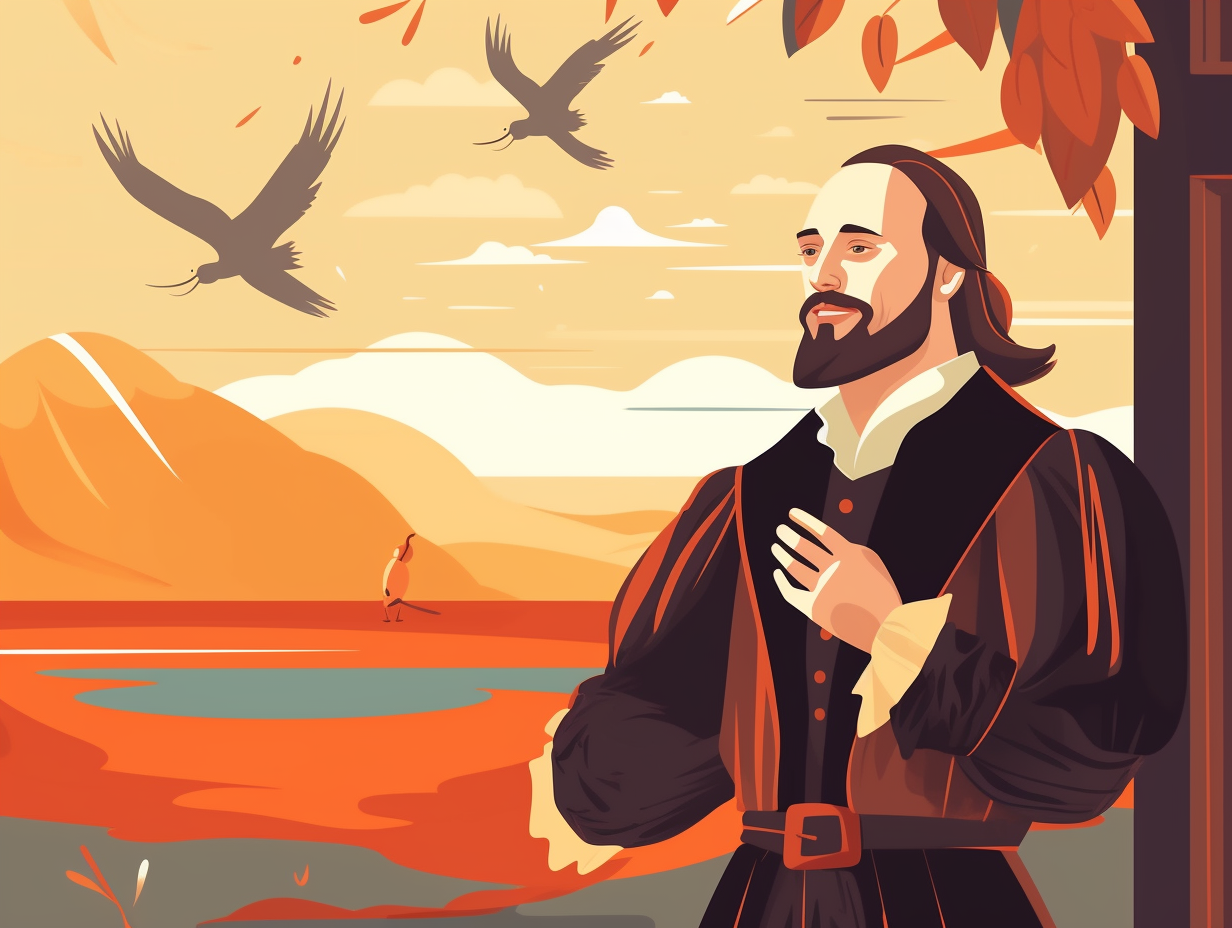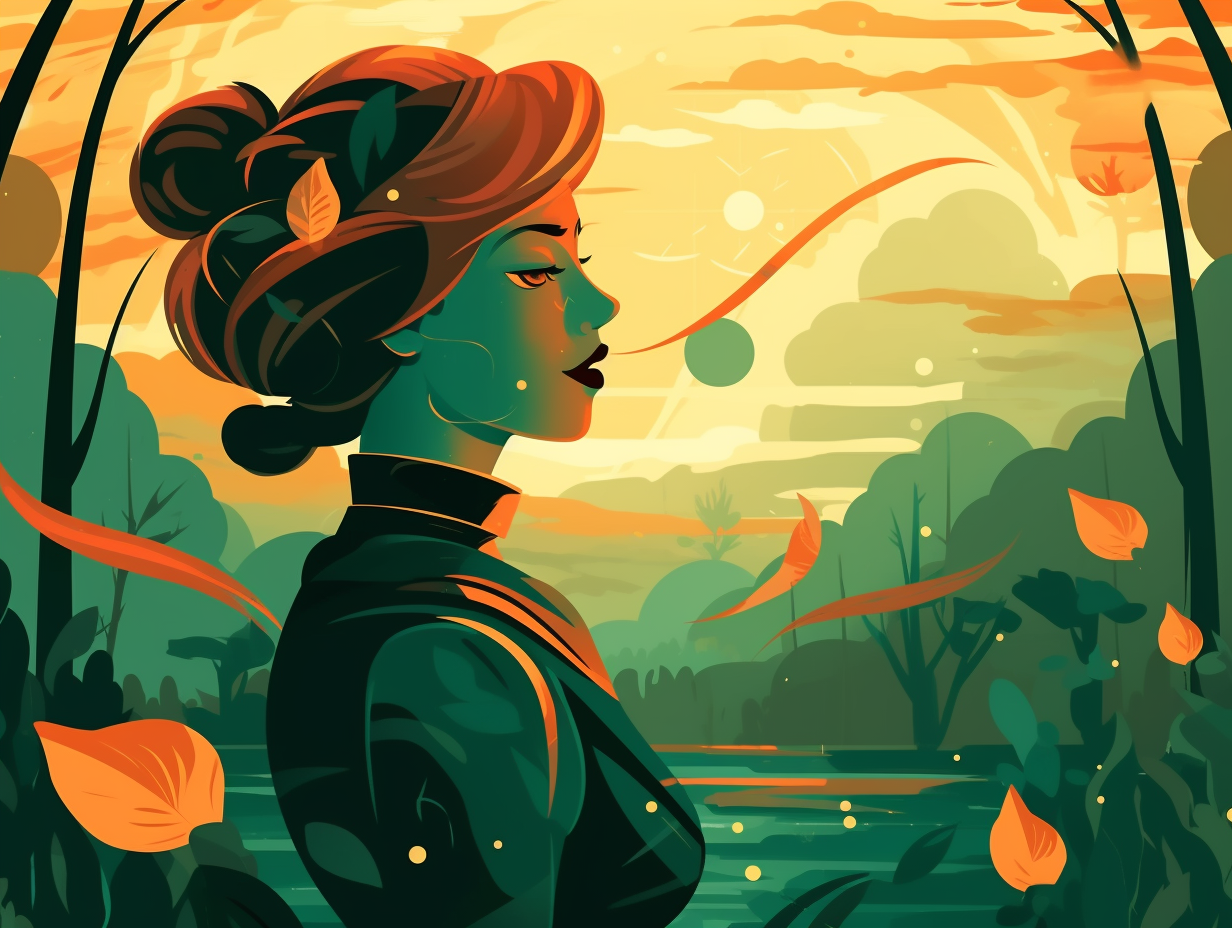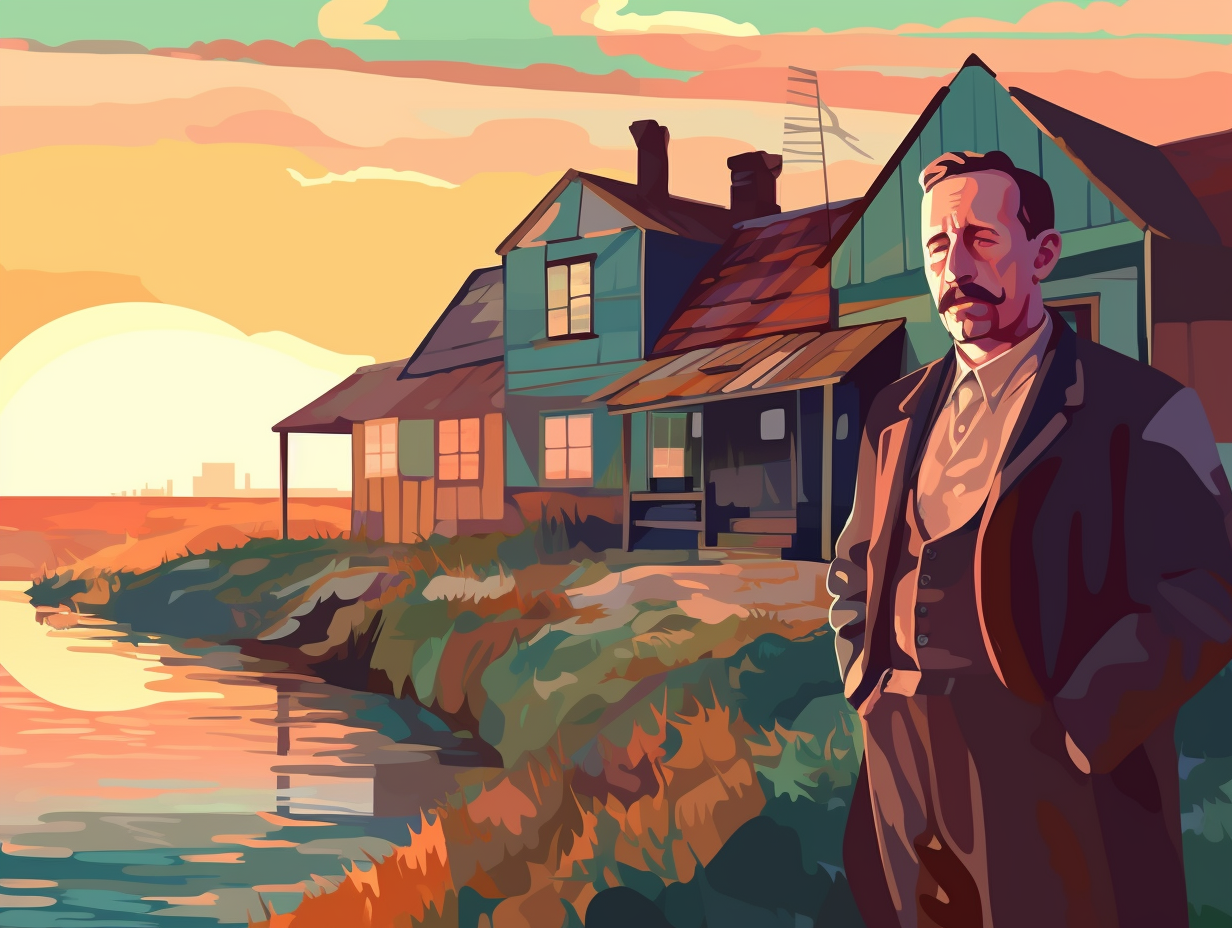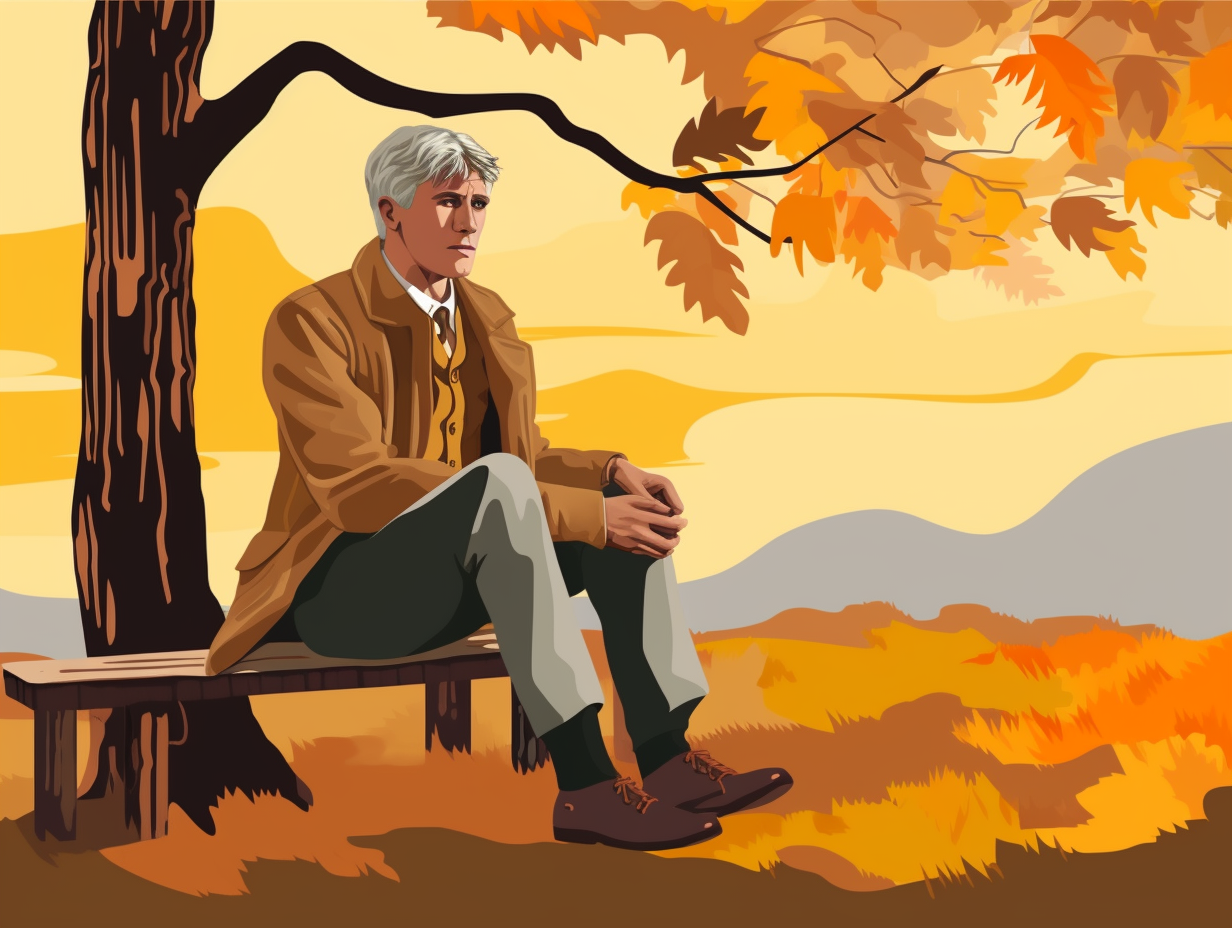Discover the Unexpected: 12 Entertaining and Inspiring Fun Facts About Langston Hughes
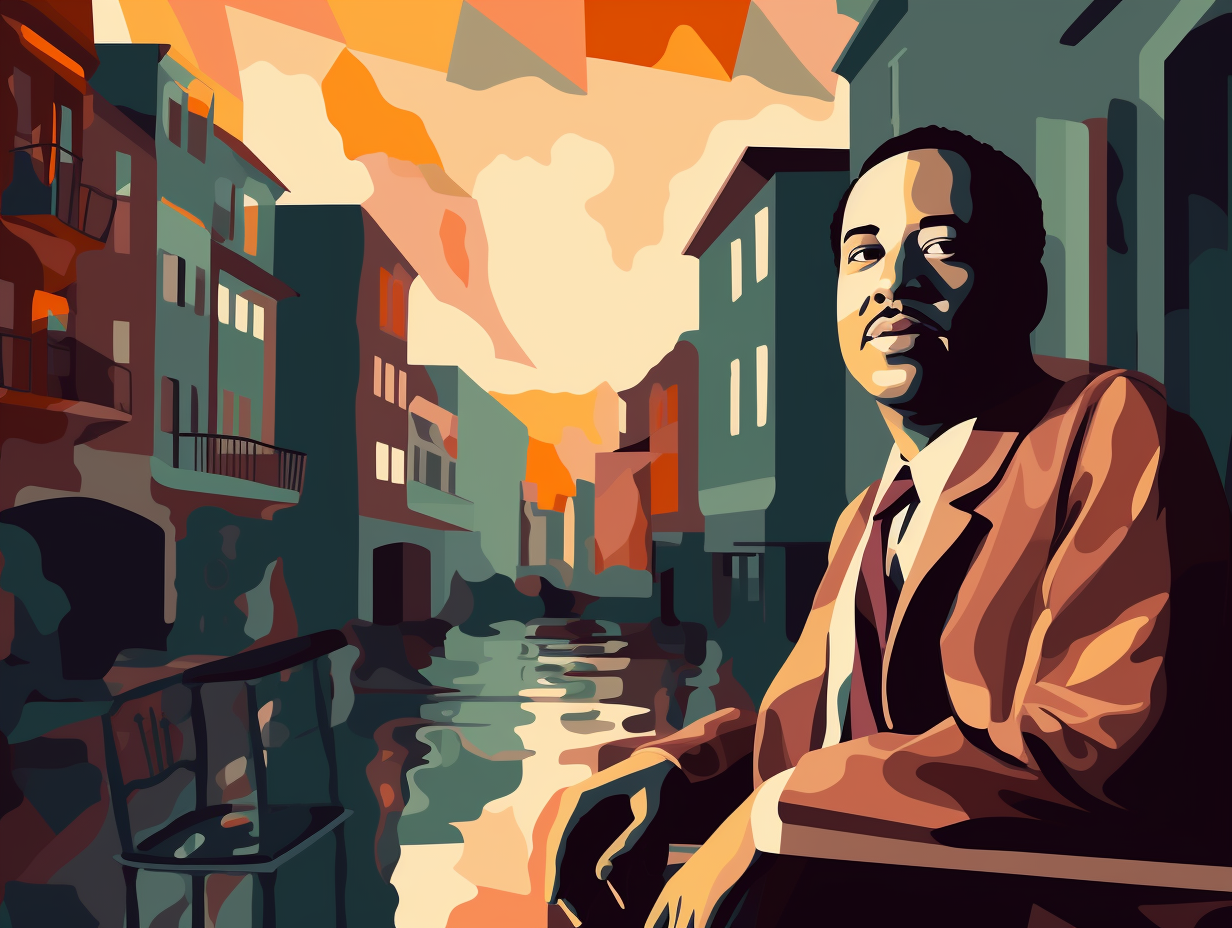
1. Father-Son Broadway Therapy
Before father-son therapy sessions became all the rage, Langston Hughes gave it a go through the riveting world of Broadway theater: His play "Mulatto," which tackled racial conflicts and father-son tension like a stage-fighting Shakespeare, enjoyed a successful 11-month, 373-performance run in 1935, but intriguingly, wasn't written to impress dear ol' dad.
Source => en.wikipedia.org
2. Jazz Inspiration and Melodies
Whether Hughes had his jazz hands on, or was lost in a sea of rhymes and ripples, constant melodies inspired him to greatness: Langston Hughes drew substantial influence from jazz music to craft his significant body of work spanning poetry, novels, and short stories, chronicling black life from the Harlem Renaissance to the modern civil rights era.
Source => c250.columbia.edu

Did you know that J.K. Rowling faced twelve rejections before her magical Harry Potter book found success with the lucky 13th publisher? Discover how she overcame adversity to become a literary luminary. ✨
=> Fun Facts about Authors
3. The Cocktail of Hughes' Talent
If Langston Hughes were a cocktail, he'd be a jazzy mix of soulful beats, stirring words, and a splash of the blues, shaken and stirred to literary perfection: As a renowned poet and advocate for African-American art forms like jazz and blues, he pioneered the fusion genre of jazz poetry, collaborated with legends like Monk and Mingus, and even penned a kids' book on jazz, making his love for these genres a true hallmark of his life and work.
Source => arts.gov
4. Jazzy Guide to Children's Adventure
You might know Langston Hughes as a poetic virtuoso, but did you know he was also a jazzy guardian of children's literary adventures? That's right, he was like an eloquent, rhythm-loving Willy Wonka, dishing out delightful notes and juicy jazz knowledge: It turns out our beloved Langston was not just a phenomenal poet, but also the author of novels, plays, and children's books, including "The First Book of Jazz" (1954), which is still in print today, introducing young imaginations to the melodious world of jazz music.
Source => studysmarter.us
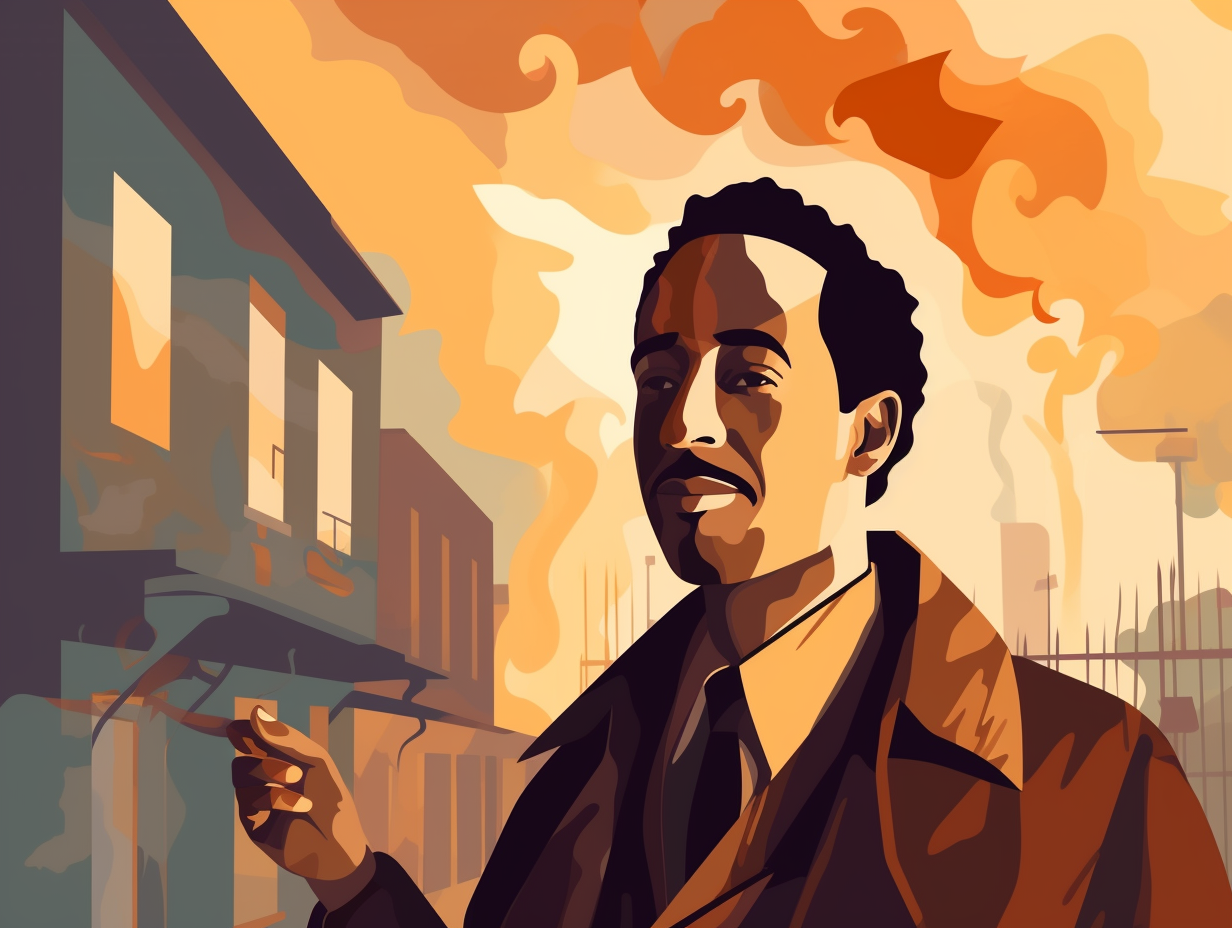
5. Busboy to Poetic Stardom
Who says busboys don't get all the action?: Langston Hughes, while working at the Wardman Park Hotel, bumped into renowned critic Vachel Lindsay, and got his poetry career turbocharged in a single encounter, proving that poets and busboys alike can achieve greatness through passion and persistence.
Source => americaslibrary.gov
6. Teenage Muse on a Train Ride
Before becoming the rhyme-friendly wanderlust of wordsmiths, young Langston was just a teenager with poetically potent thoughts in transit - quite literally, if you'd wheel-y believe it: At the tender age of 17, Langston Hughes penned "The Negro Speaks of Rivers" while aboard a train journey from Cleveland to Mexico City, crossing the Mississippi River near St. Louis, and despite his globe-trotting escapades later in life to places like France, the former Soviet Union, and Africa, the Midwest always remained his poetic muse.
Source => lareviewofbooks.org
7. Quoting Hughes in the Senate
In a move that would make Hughes' eyebrows dance to the tune of a poetic symphony, a modern-day lawmaker crooned his verse in the hallowed halls of the Senate: Senator Cory Booker quoted Langston Hughes' poem "Let America Be America Again" during the Senate confirmation hearing of Judge Ketanji Brown Jackson, highlighting the lasting impact and relevance of the poet's work in present-day politics.
Source => npr.org
8. Jamming with Harlem Renaissance Greats
Before he was the master of verses, Langston Hughes was probably just a master of rehearsing: this poet extraordinaire not only played with words but strummed the heartstrings of the Roaring Twenties, jamming with the greats during the Harlem Renaissance! Seriously though: Langston Hughes was a vital figure in the Harlem Renaissance, using his influential writing to promote civil rights, social justice, and redefine the portrayal of black Americans alongside artistic visionaries like Zora Neale Hurston and Countee Cullen.
Source => pbs.org
9. Rhyme-Slinger for a Living
Move over, Shakespeare: Langston Hughes was the original rhyme-slinger, making a living off of his poetic prowess and jazzing up the literary world one verse at a time. In fact: Hughes was the first African-American poet to make his living solely from poetry and was a major force during the Harlem Renaissance, passionately pushing the Black American vernacular into mainstream literature and sparking cultural debates with his groundbreaking work.
Source => sheilaomalley.com
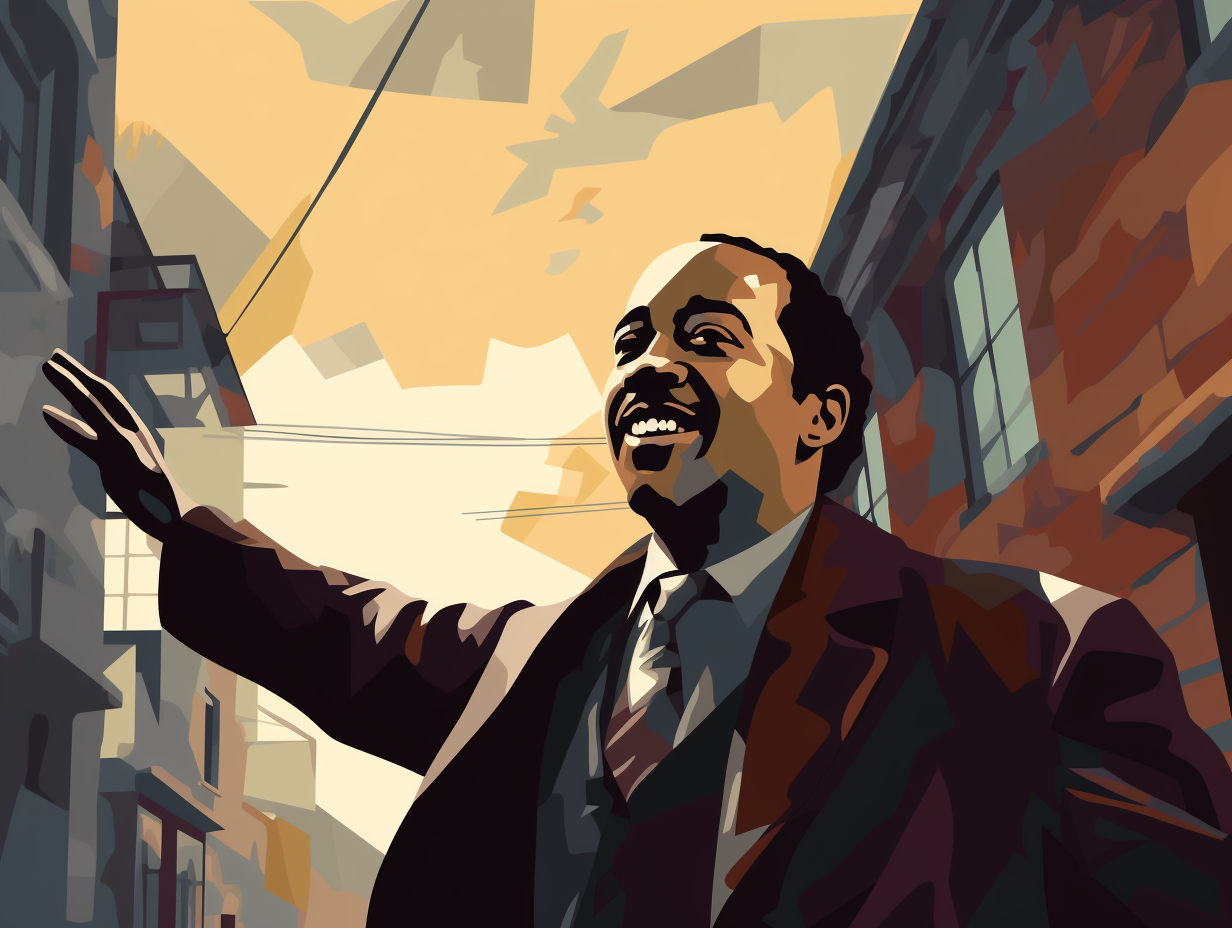
10. Jazz Poetry Pioneer
Jazzing up the written word like a poetic DJ in a literary nightclub, Langston Hughes didn't just scrape by on his talent, he brought the jam-packed rhythms of an American heartbeat in every stroke: As an originator of jazz poetry, he seamlessly infused jazz and blues elements into his work, not just imitating the sound, but transforming the everyday African American experience into soul-stirring art.
Source => arts.gov
11. A Whimsical, Unserved Entrée
They say a picture is worth a thousand words, but what happens when witty words meet wacky watercolors? Langston Hughes and Elmer W. Brown cooked up their own artistic alphabet soup – only, this eclectic entrée was never served at the swanky 1930s literary soirée: In 1936, Hughes and Brown worked on "The Sweet and Sour Animal Book," a children's picture book that remained unpublished during their lifetimes. Their whimsical work receives well-earned limelight in a Cleveland exhibition titled "The Sweet and Sour Journey of Langston Hughes and Elmer W. Brown," which features 21 of Hughes' poems, letters, and over 30 illustrious illustrations and watercolors by Brown.
Source => nytimes.com
12. All-You-Can-Scribble Buffet
If Langston Hughes were a buffet, he'd have an all-you-can-scribble platter: From plays to novels, poetry to essays, this creative genius dabbled in a smorgasbord of artistic endeavors, whipping up lyrics for musicals too. The pièce de résistance: He wrote the libretto for the acclaimed opera "Troubled Island."
Source => washingtonart.com
Related Fun Facts








